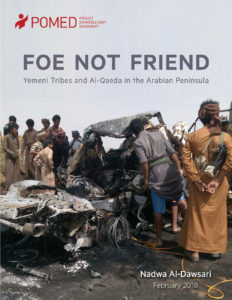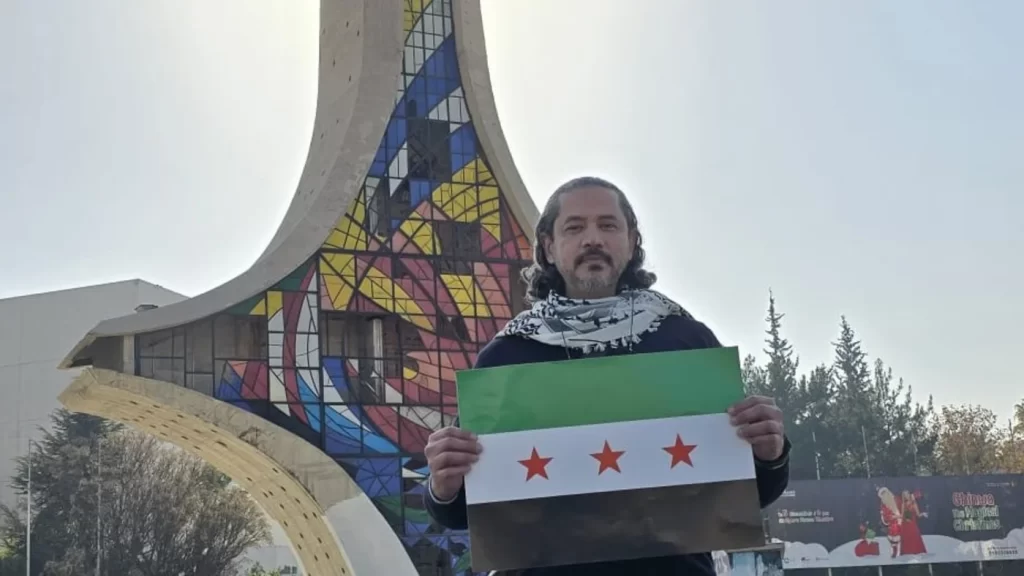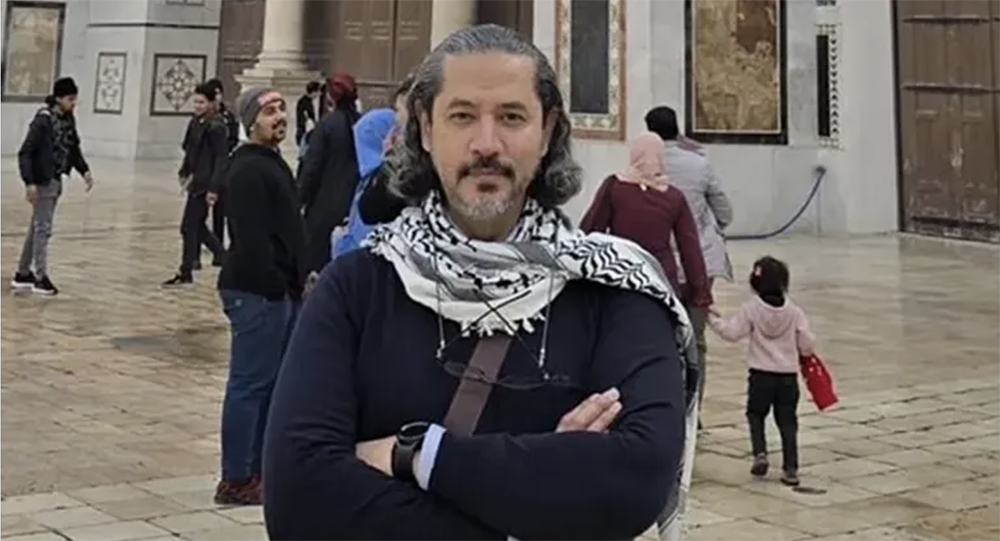 EXECUTIVE SUMMARY
EXECUTIVE SUMMARY
For more than 15 years, the United States has waged a counterterrorism campaign in Yemen against al-Qaeda, whose local affiliate, al-Qaeda in the Arabian Peninsula (AQAP), poses an especially dangerous threat to U.S. interests according to U.S. officials. Despite hundreds of U.S. airstrikes and other pressure, however, AQAP has been resilient, and has even gained ground in the past seven years as political turmoil, followed by a civil war, has plunged Yemen into chaos.
Some Western observers (along with many Yemeni government authorities) contend that a key reason for AQAP’s staying-power is that some tribes are aligned with the terrorist group and provide it with safe havens, fighters, and other support. To be sure, AQAP has a presence in some tribal areas, and some tribal members (along with other Yemenis, and some foreigners) have joined the group. But in doing so, they have acted independently, against the wishes of their tribes. Yemeni tribes as collective entities—as opposed to individual tribesmen—have not allied with AQAP or agreed to give its fighters sanctuary. Tribes reject the group’s radical and violent ideology and tend to see AQAP as a serious challenge to their authority.
Because of tribal pushback, AQAP has only been able to seize territory and make other gains in parts of Yemen where the tribal structure is relatively weak. The failure of the Yemeni ruling elite to seriously confront the AQAP problem, and the civil war instigated by that same ruling elite, have been more significant factors in the group’s spread than any tribal action.
Although they are opposed to the extremist group and heavily armed, tribes in areas with an AQAP presence do not automatically use force against the militants. Tribal leaders seek to avoid unleashing violence that could destroy whatever fragile security exists in their regions—maintaining stability and social peace for their kinsmen is their top priority. Instead, tribes first use peaceful conflict resolution to deal with AQAP threats, and resort to force only in what they assess as particularly dire circumstances and when they have exhausted all other options. Through peaceful conflict resolution, and sometimes through force, tribes have helped to limit the spread of AQAP.
This report unpacks the dynamics between tribes and AQAP to explain that Yemeni tribes are not an inherent part of the problem, but instead could represent a key to countering the group effectively. The report describes the evolution of al-Qaeda in Yemen since the late 1980s; what tribes are, the government’s relations with tribes, and tribes’ governance and value systems; and AQAP-tribal interactions before and during the civil war, when some tribes have coordinated with AQAP against the Houthis, a common enemy. The report goes on to discuss how the excessively militarized U.S. counterterrorism approach has worsened some of the conditions on the ground that fueled al-Qaeda in Yemen in the first place. Finally, the report offers four broad recommendations for U.S. policy:
- Work to end the war as soon as possible. The civil war is devastating Yemen, opening the door for AQAP to expand, and degrading the capacity of tribes and other Yemeni institutions to counter the radical group.
- Do not wait until the end of the war, however, to help Yemenis strengthen security and improve living conditions. Act now to address urgent local security, economic and humanitarian needs, especially through bottom-up approaches that engage tribes.
- Limit the use of airstrikes and raids against AQAP, especially in areas where clashes between Houthis and tribes are ongoing. Such attacks generate popular anger among tribes and other Yemenis that AQAP exploits.
- Explore the possibility of rehabilitation for some tribesmen who joined AQAP for economic, political, or social reasons, not out of ideological commitment. Rehabilitating such AQAP members would be controversial and difficult to implement, but it could pull hundreds of tribesmen away from the terrorist group.
KEY TAKEAWAYS
- Contrary to a common stereotype, tribal areas are not lawless. They operate according to a well-developed system of rules, rights, and obligations, including peaceful conflict resolution methods that have been effective against AQAP.
- Tribes oppose AQAP because its presence can instigate conflict within tribes, threaten the fragile social order, and invite air strikes. Tribes reject AQAP’s goal of replacing tribal customs with Shari’a law and relegating tribes to a subordinate status.
- AQAP has been able to recruit some tribal youth who, frustrated, without economic prospects, and isolated in their communities, are vulnerable to its propaganda that speaks to their social and political grievances and offers them status and material gain.
- During the civil war, tribesmen in some regions have coordinated with AQAP militants to drive the Houthis from tribal regions they have invaded. For these tribesmen, this does not represent an ideological alliance, but a necessary wartime tactic against a shared enemy.
- The preferred U.S. strategy against AQAP has been to prosecute a controversial and far-reaching air (mainly drone) strike campaign. These strikes have killed AQAP leaders, but also killed and injured many civilians in tribal areas, and caused destruction and disruption that breed deep anger among tribes toward the Yemeni and the United States governments. AQAP exploits this to build support.
- The United States has not given nearly enough attention to the political and economic conditions inside Yemen that have given rise to AQAP in the first place.
Watch:
Foe Not Friend – Q&A with Nadwa Al-Dawsari about AQAP and Yemeni Tribes
Nadwa Al-Dawsari is a Nonresident Senior Fellow at the Project on Middle East Democracy as well as a researcher and conflict management practitioner with more than 17 years of field experience in Yemen. She specializes in tribes and informal governance in Yemen. Since 2008, Al-Dawsari’s field research has focused on security and justice, governance, and political transition. Her recent work examines community-level perspectives on the current conflict in Yemen.
From 2003 to 2009, Al-Dawsari worked with the National Democratic Institute (NDI) field office in Yemen, managing programs on election monitoring and tribal conflict resolution. From 2009 to 2012, she founded and directed Partners Yemen, the local affiliate of Partners Global, focusing on strengthening community-based conflict resolution mechanisms and civil society, particularely in tribal areas.
Nadwa is a Chevening scholar, a Hubert H. Humphrey fellow, a Gold Star Alumna of the U.S. Department of State’s International Visitor Leadership Program, and a member of the Institute for Inclusive Security’s Women Waging Peace Network. Her writings have been published by the Carnegie Endowment for International Peace, the United States Institute of Peace, the Atlantic Council, the Middle East Institute, Oxfam, Lawfare, the Center for Civilians in Conflict, and POMED. She holds an MA in Development Studies from the University of Leeds in the United Kingdom and a BA in English Literature from Sanaa University in Yemen.




